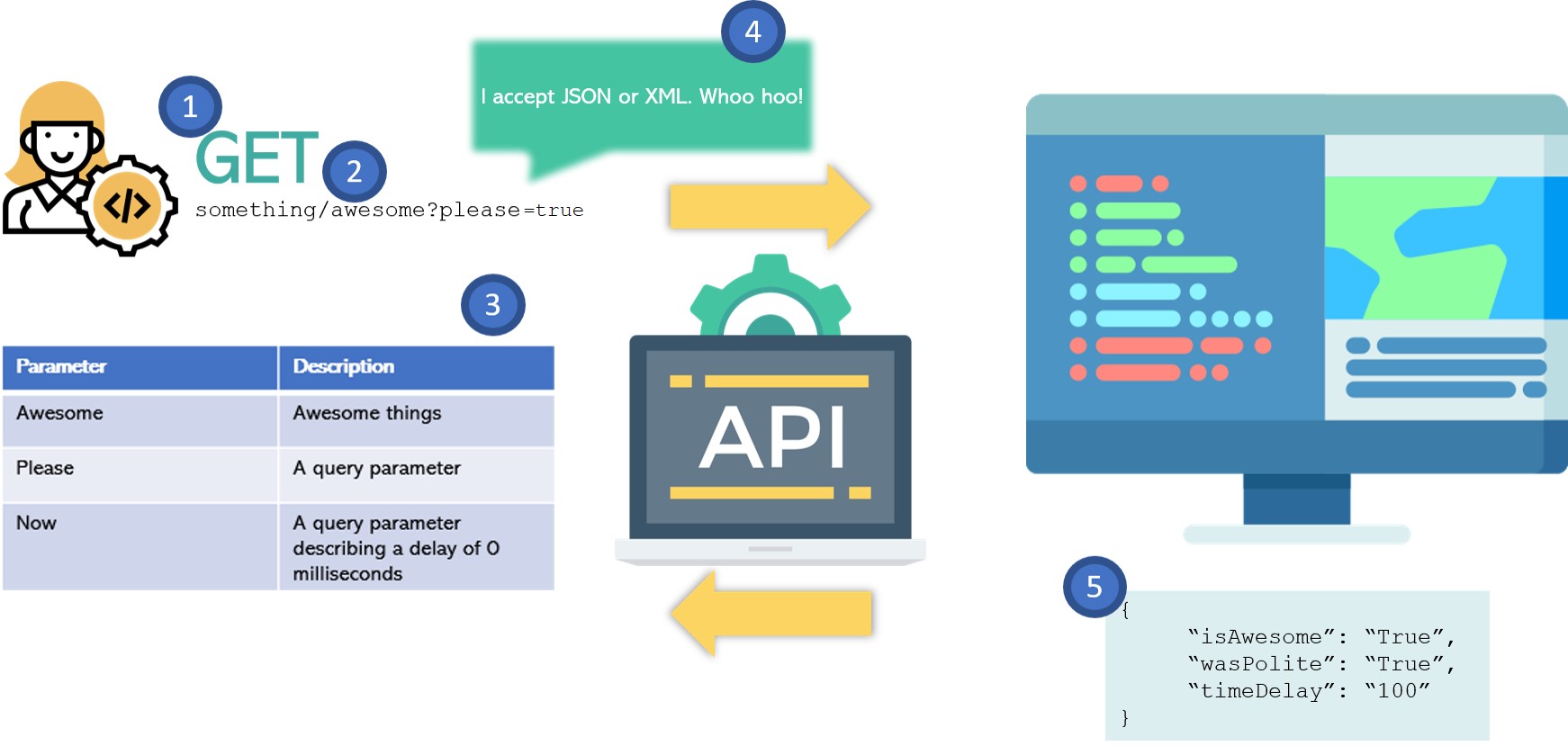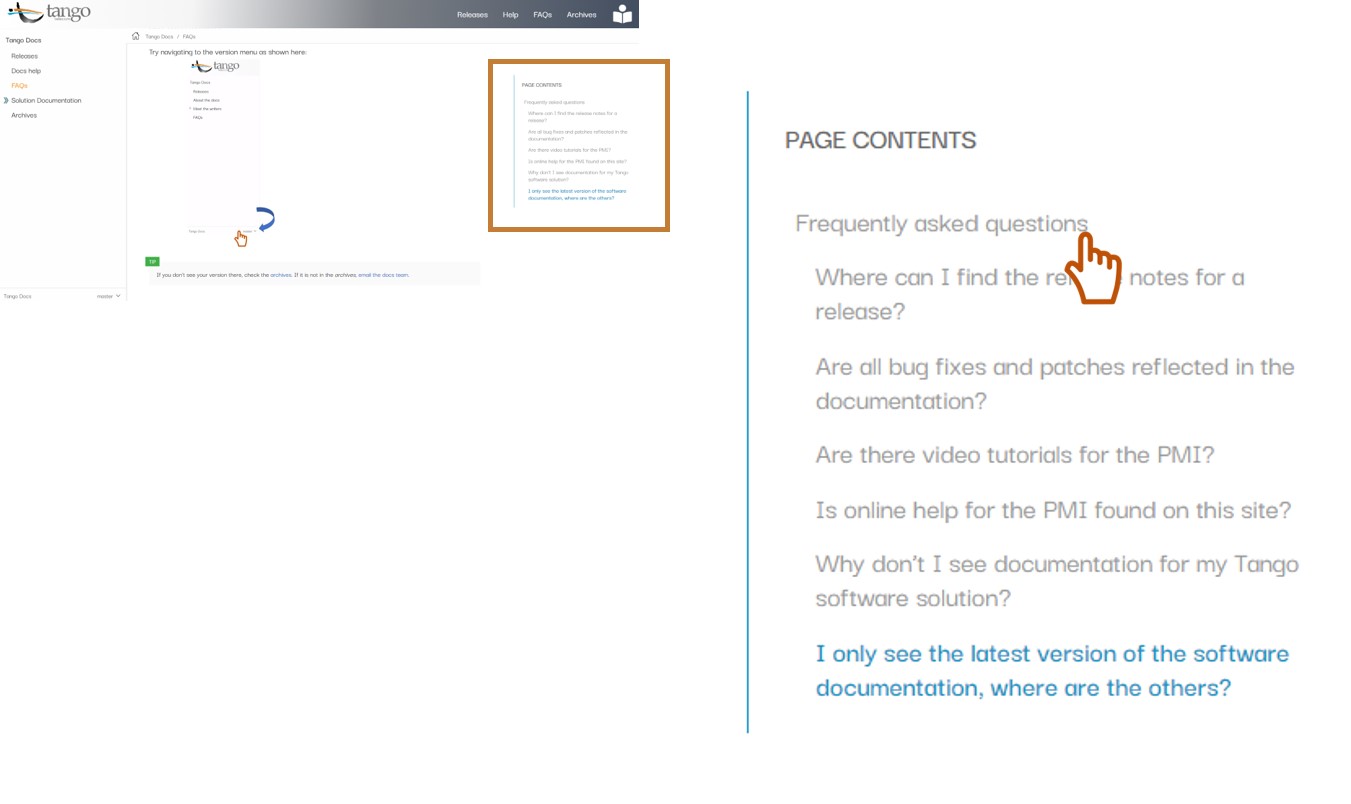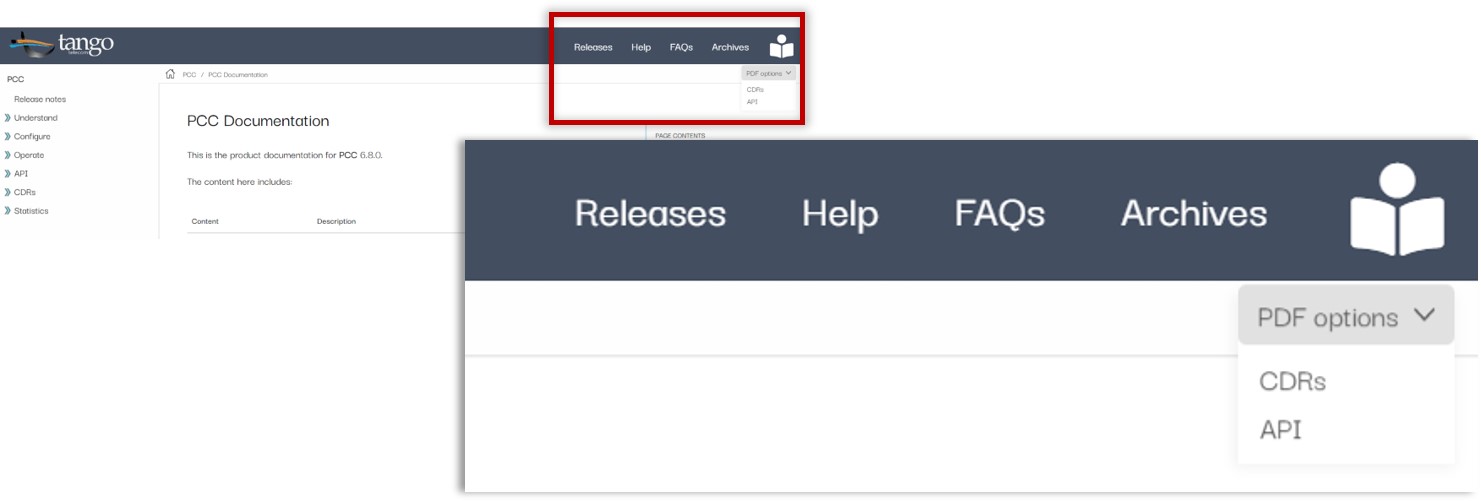Docs help
This page helps you get started using Tango Telecom© product documentation as well as provides guidance on documentation structure, layout, and useful tips for using the documentation.
| You can always email the docs team if you have a specific request. |
Navigate to the docs
Navigating to the Tango documentation site is easy. Simply, navigate to the lower portion of the left-side navigation bar and select the Tango solution for which you want to view the documentation.
Documentation Structure
The documentation is structured in essentially the same way for each solution:
| Content | Description |
|---|---|
Release Notes |
Notes detailing enhancements, new features, and bug fixes. |
Understand |
Content describing the solution or component and how it functions at a high-level. |
Configure |
Configuration items that you might need to customise or run the solution or component. |
Operate |
Operation tasks and procedures to help you run the the solution or component. |
API Operations |
API operations including sample responses and necessary parameters. |
Call Detail Records |
Also known as CDRs, Call Detail Records, detail important data produced by a mobile phone exchange. |
Statistics |
External statistics that help you understand the metrics of the solution or component. |
CDR documentation format
- CDR title
| Field | Name | Description |
|---|---|---|
<N> |
|
Field Description. |
- Generic CDR sample
00041000080702060103090303,87,1,2016-10-28,12:45:09,100,context=getAllowedPlans,Policy Get Allowed
Plans,12:45:08,Policy Servers,Policyd,0,446,200,200,12:45:09API documentation format
Each API Operation on this site is structured in the same way.

-
First, you will see the method such as
GETorDELETE. -
Next, the URI and any information related to an endpoint will follow.
-
Third, any URI and/or query parameters will be explained with an accompanying table.
-
After that,
Headerinformation is provided regarding authorisation and content type. -
And finally, sample request and responses are included to show you what (if any) payloads are needed and what you should anticipate in response.
| If there are any common obstacles or pitfalls, we’ll also include helpers to help you overcome that as well. |
GET path/URL/<aParameter>?aQueryParameter={identifyYourself}
HEADER INFO
tenant: <tenantName>
authorisation: HTTP Basic Auth
content-type: application/JSON
accept: application/JSON
permissions: PERMISSION_TYPE
Sample Response
{
"response" : "success",
"description" : "good on you!"
}
- API operations are labelled as follows
GET |
retrieves something |
POST |
creates something |
PUT |
updates something (often with a |
DELETE |
removes or deletes something |
Helpful tips
Here a few helpful tips for using the doc site.
Scroll to the top
If you’re reading through the documentation and want to quickly return to the top of the page, simply select the top link within the Page Contents panel as shown here:

Get a PDF version of a page
Not all pages have PDF versions. As of 2021-06-09, a CDR Reference Guide and an API Reference Guide of each solution is available. You can find these documents available in the PDF options button located in the top right of the landing page of the solution documentation as shown below:
| The PDF options button will only display if a PDF is available for that particular documentation set. |
| If you would like a PDF of another part of the documentation set, make a request with the docs team. |

Get help from the docs team
To get help from the docs team, just send us an email.